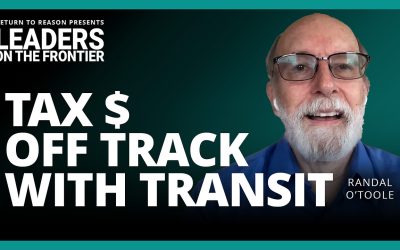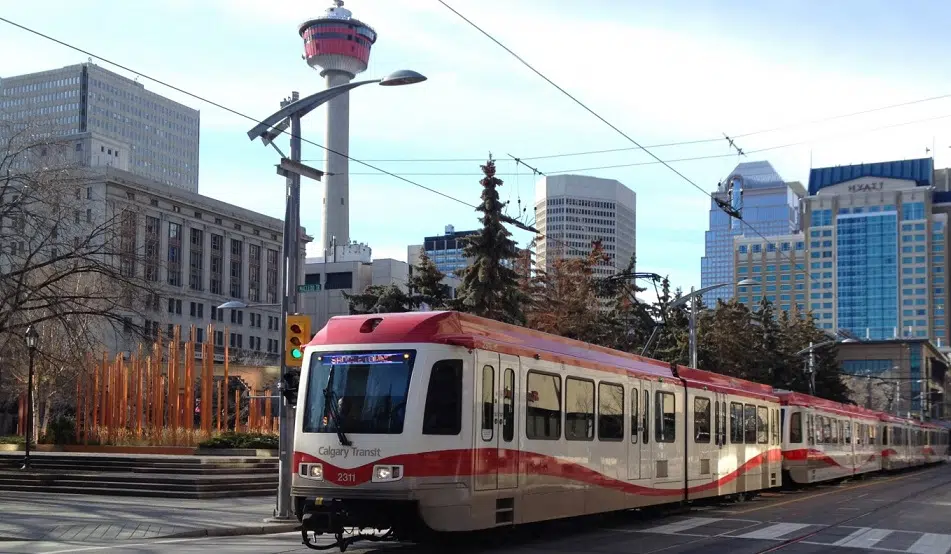Gary Tarantino owns arguably the most valuable taxi in Vancouver, in an industry already known for its breathtakingly high licence values. Tarantino's Licence 70384 could easily command more than $1 million in a business where the average Vancouver taxi costs $800,000. That's because he is the last holdout of independent taxi owners in an industry where all of the other 687 licences are held by the city's four taxi companies.
The Passenger Transportation Board, which governs the taxi industry, lists Yellow Cabs, Blacktop/Checker Cabs, Vancouver Cabs and MacLure's, the city's oldest, as the operators of 588 full-time taxi licences. They also have 99 other "temporary operating permits" for weekend and peak service, of which 65 are active. All of the permits are held in the names of the taxi companies.
And then there is a single line in the PTB's books for the holder of Licence 70384, Gary Albert Tarantino. It is an anomaly left over after all other independent owners converted their licences into company shares in order to finance and consolidate a fractured taxi industry. That consolidation has helped stabilize a business buffeted by high operating expenses and
the seasonal vagaries of passenger transportation. It has also helped to put a stable price on the right to drive a taxi, a job that – like anywhere else in the world – tends to attract new immigrants.
Stubbornness But the high prices also have hardened opposition against pleas from the suburban taxi companies for the right to pick up the lucrative late-night fares in Vancouver's downtown entertainment zone on Friday and Saturday nights. Current rules allow them to drop off only. And in a city where it can be tough to find a taxi at closing time or in a rainstorm, there are lots who argue Vancouver's taxis should have more competition.
For Tarantino, owning the last independent licence – which he allows Yellow Cab Co. to operate under its colours as Car 21 – is a combination of nostalgia and in-your-face stubbornness.
Tarantino bought Car 21 and its licence from his father Albert – a former part-owner of Yellow Cab – in 1978 for $100,000. Albert, in turn, had bought the licence from someone else in 1950 for $5,000 as one of the new owners of an expanding Yellow. Tarantino said he bought his father's licence to stop the pestering his father was getting from other drivers to sell, and for the next four years Albert continued to drive the taxi in peace. For 63 years, that licence has been operated by the Tarantinos, nearly half of that time with Albert at the wheel. Gary Tarantino hasn't driven it as a cabbie for more than 30 years.
The uniqueness of the licence has made Tarantino popular among wannabe taxi owners who periodically call him up to see if he wants to sell. It has also put a premium on the market value of the licence.
"Oh, it's worth more than a million, when others are going for about $800,000," said Carolyn Bauer, the executive
director of the Vancouver Taxi Association and also Yellow's general manager. "This is the last one. I'm still hoping Gary sells it some day."
Convoluted industry In Vancouver's convoluted and Byzantine taxi industry, there are non-owning drivers who drive for a share of the day's receipts, and owners of entire cars who drive one shift and hire someone to take the other. There are drivers who take three-year leases, pay owners thousands in monthly fees and hope to make a profit from the difference. And there are drivers who, improbably, each own one half a car, one taking the morning shift and the other taking the night shift.
But in all of this there are no actual paper licences to be traded, except perhaps Tarantino's should he ever decide to sell. The fees charged by the Passenger Transportation Board don't sound like much – $200 annually for an application fee and $100 to renew a licence (Vancouver also charges $520 for a separate operating licence). But the licences are actually worth their high-sixdigit asking price because of their intrinsic value as titles to jobs. In a system where the number of cabs is strictly controlled by government, a specialized industry of banks, lawyers, accountants and insurance agents exists to service this trade in shares, part and whole ownerships of cars and the hundreds of millions of dollars in investments they represent.
A complex business structure is built around taxi companies that own central dispatch services, buy fleet insurance, properties and even replacement cars. Yellow Cab, for example, owns an entire block on Clark Drive, complete with repair bays, a body shop, dispatch building, parking lot and car wash. Owners have rights to operate by virtue of shares, with each car controlling two Class A shares. Many of those cars are owned by two owners. Those shares trade in a market restricted to trusted and known drivers. It's as much who you know as what you know.
"You can't just come in off the street and buy shares or a car," Bauer said. "You have to have driven for a while, and be approved by the taxi company's board of directors."
Buying a taxi is no easy feat, either. Convincing a bank to loan money for a share that doesn't include an actual license is such a fine art that in Vancouver only two branches of two banks, the Bank of Montreal and Royal Bank of Canada, specialize in this kind of illiquid financing.
Taxi companies, which control the licences, act as financial guarantors.
Many owners who bought their shares years ago for $60,000, $100,000 or even $200,000 now use the increase in equity to finance other businesses, Bauer said.
"If you knew how much the taxi industry is responsible for investments in this city you would be stunned. There are drivers who have used the equity in their cabs to go on to buy Subway and Quiznos franchises, homes, small coffee shops and businesses," she said.
On the best days, drivers can pull in $500-$700 a night shift, but the average is closer to $350. Day shifts average closer to $225.
Tarantino says good drivers gross upwards of $100,000 a year, from which they have to pay considerable expenses. Non-owner drivers get 42 per cent of the day's receipts. Of the 58 per cent left, the owners pay dispatch fees, insurance costs, fuel, taxes, depreciation of the vehicle and benefits and holiday pay eat up almost half the remaining revenues.
On good weekend shifts, non-owners can make a few hundred dollars. But on the quiet weekday shifts, "basically guys are going hand to mouth," Bauer said.
Opening up market "This is basically a right to a job, and everybody works very hard," said Kulwant Sahota, the president of Yellow, who owns a half-share of a car. "Nobody is getting rich off this but they make enough to feed their families and put their children through school."
The Vancouver companies hinted how much is at stake in a recent application to B.C. Supreme Court to stop the Passenger Transportation Board from issuing 38 temporary operating licences to seven suburban taxi companies in Surrey, Delta, Burnaby and the North Shore who want to use their existing fleets to pick up fares in Vancouver's entertainment district on Friday and Saturday nights.
The suburban drivers argue there is pent-up demand from passengers who suffer long waits after public transit shuts down.
In response, the Vancouver firms said that the two banks that finance the Vancouver taxi industry hold more than $373 million in outstanding share loans. An expert opinion filed in court by Dan Hara, an Ottawa-based transportation consultant, suggested that opening the Vancouver market to outsiders would cause lost revenues of up to $23.7 million and seriously undermine the financial stability of the share system. A judicial review of the PTB's decision will be heard August 20.
Last year the taxi companies commissioned a study by Garland Chow of the University of B.C.'s Sauder School of Business that concluded there was room for an additional 99 temporary operating permits but the public was generally well served by the current system.
The threat of suburban taxis getting a foothold in the Vancouver market scares the Vancouver Taxi Association. "If we lose this judicial review, it could drop the share prices by as much as $150,000 a share, and that's going to bankrupt some drivers who have loans with those banks," Bauer said.
Immigrant stepping stone The history of Vancouver's taxi industry is a patchwork of little companies that came and went as the independence of drivers waned. It is also an industry highly influenced by immigration.
"The taxi industry, over evolution, has been an immigrant steppingstone. At one time it was the Italians who owned, or the Greeks or the Jews or the Chinese. It is a way of life. It is a start.
"These people are coming from nothing, a lot of them and it is a start in life for them," said Tarantino, who jokingly says he's probably the last Italian to own a taxi cab.
"Now it is the Indo-Canadian community and the Iranians and others who are the drivers. These people are putting their kids through school, so it is still good enough. Most of these guys are putting in a minimum of 10 hours. They're not making what a lot of other people make but they are making a living and they are their own boss."
Tarantino's footprint in the taxi industry isn't limited to Car 21. He first pumped gas for Yellow when he was eight. In the early 1970s, he drove another cab. By 1974 he'd switched to driving tow trucks and in 1976 formed Unitow, now one of the dominant towing companies in the province. But he still had a hankering for the taxi business, and in 1979, just after he bought his father's licence, Tarantino and three others bought several licences and opened up Vancouver Taxi.
They offered, for the first time ever, handicapped and wheelchair service. It was the last time a group of taxi licences was used to form a company in Vancouver.
It is also why, in the PTB's books, Vancouver Taxi has two separate sets of licences, one for regular taxis and 30 for handicapped cabs. Tarantino has since sold his stake in Vancouver Taxi.
The last amalgamation took place in the early 1990s, when Advance Cabs, with its red and white livery, joined Yellow because it was near bankruptcy and couldn't match the modernization efforts of Yellow and Blacktop, which had jointly converted their voice dispatch desks to a computerized system.
Critics of vested interest Not everyone is a fan of the way Vancouver's taxi industry has developed. David Seymour, a public policy analyst with the Manning Foundation in Calgary, argues the capping of licences artificially inflates their value, which he says is bad for both passengers and drivers.
In 2009 Seymour published a pair of studies for Winnipeg-based Frontier Centre, a public policy group, arguing Canada's taxi industry could benefit from deregulation.
He says the $800,000 cost of a cab has to be borne by someone, and that's likely the passenger through higher taxi fares or drivers through lower wages.
"Because you have a small group of people who have immense vested interest in keeping the prices high and the numbers restricted, it is unlikely they will do a sober deliberation (about opening it up to competition)," he said. "That can't be good either for the drivers or the passengers."
But Bauer and Tarantino say deregulation was tried in the United States with spectacularly bad results.
When fighting deregulation, the taxi industry holds up Seattle as an example. After the city stopped regulating taxis in 1979, service deteriorated, cars were poorly maintained, and fist fights even broke out among drivers at cab stands. Five years later the city reversed itself and reinstituted controls.
The high barrier to owning a car in Vancouver has also caused dissension among lessee drivers, who complain the system is controlled by a cartel of owners.
Recently an investigative report by freelance writer Luke Brocki for
Vancouver's online Dependent Magazine looked at one angry Yellow Cab leaseholder driver who joined the suburban taxi drivers' efforts to get access to weekend licences.
The driver complained he had to generate $4,800 a month just to break even.
Bauer, who is also Yellow Cab's general manager, dismisses the story as mischief-making.
Sahota said nearly two-thirds of the company's 325 shareholders are owner-drivers, most of whom own just a half of a car.
The rest are leaseholders or drivers who work just for a share of the day's business.
Only a few people own more than one taxi, and even if they do, their voting power is limited to a maximum of two Class A shares. In other words, no one owner can corner the Vancouver market, he said.
Under provincial law, cars have to be replaced every seven years, although Bauer said they usually don't last more than four.
High gas prices have forced the industry to move away from gas guzzlers, and every company in Vancouver has become an enthusiastic endorser of hybrid vehicles.
Where the average consumer might find a Prius or a hybrid Toyota Camry a bit pricey, the Vancouver taxi industry has discovered the fuel savings often make the daily difference between profit and loss.
Cab is a 'security blanket' Tarantino, the outlier in this entire industry, is somewhat ambivalent about his licence. He doesn't expect it to make much more for him than covering the cost of replacement every four years.
When asked why he has never sold, Tarantino insists it's simply because the car has been in his family for so long.
But Tarantino's wife Stella, who also grew up in the taxi industry, thinks her husband has a more pragmatic reason.
"We always managed to scrape through in the nick of time. In a way, for him, it is a security blanket. If all else fails, if my world blows up, I can still get in a cab. I still know how to drive and I like people, and I can still support my family," she said.


